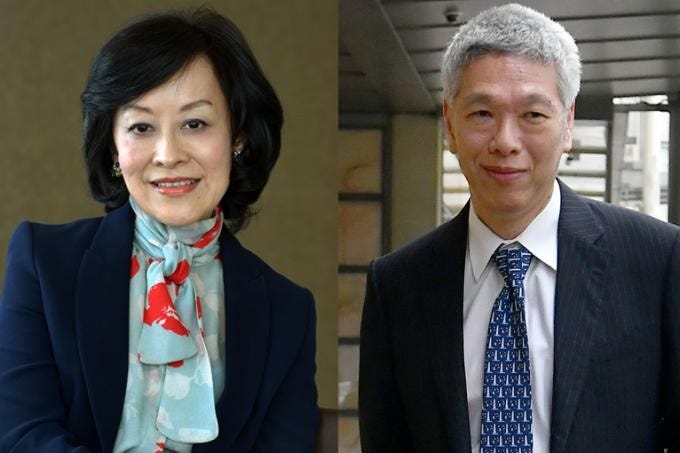Lee Sister-in-law Latest Victim in Singapore’s Bitter Family Feud
Attorney Lee Suet Fern accused of being “deceitful”

The acrimonious fight between Singapore Prime Minister Lee Hsien Loong and his siblings over the disposal of Lee Kuan Yew's iconic black-and-white colonial home has taken a new and even more bitter turn, with Lee Suet Fern, Kuan Yew’s daughter-in-law and the wife of the prime minister’s brother, facing possible disbarment and fine over her handling of t…
Keep reading with a 7-day free trial
Subscribe to Asia Sentinel to keep reading this post and get 7 days of free access to the full post archives.

